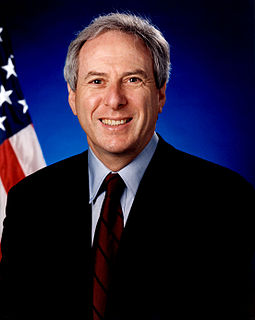A Quote by Lynn Shelton
My mom was in education, and I remember reading in one of her books about multiple intelligences - this whole theory about how there are all these different ways you can be intelligent, like eight or 10 of them or something. And one of them is emotional.
Related Quotes
My platform has been to reach reluctant readers. And one of the best ways I found to motivate them is to connect them with reading that interests them, to expand the definition of reading to include humor, science fiction/fantasy, nonfiction, graphic novels, wordless books, audio books and comic books.
I think I'm still fed by my childhood experience of reading, even though obviously I'm reading many books now and a lot of them are books for children but I feel like childhood reading is this magic window and there's something that you sort of carry for the rest of your life when a book has really changed you as a kid, or affected you, or even made you recognize something about yourself.
Evan Rachel Wood is a robot, yes. And some of them, there was one person in particular that was so sure, wrote like a whole thesis, and tagged the whole cast. He was like, "Here's my theory. And remember I said it first." He was so proud. And it could not have been farther from what we're actually doing, but it was cute. I love that people are getting so passionate about it because I went through a million different theories, and they would keep changing and evolving.
It's amazing how everyone has their different ways of working. I like hearing about that process, reading about it. I have so much appreciation for movies because I understand how hard it is to make one. There is always something I gain from watching a movie, whether it's a silly romantic comedy or an art film.
Remember when you fell out of that tree on the farm when you were ten, and broke your arm? Remember how he made them let him ride with you in the ambulance on the way to the hospital? He kicked and yelled till they gave in.” “You laughed,” said Clary, remembering, “and my mom hit you in the shoulder.” “It was hard not to laugh. Determination like that in a 10-year-old is something to see. He was like a pit bull.” “If pit bulls wore glasses and were allergic to ragweed.” -Luke and Clary talking about Simon, pg.211-
The hardest thing is being with other people — it's like they're on a different wavelength, but only you know it. They talk about their lives and what's wrong with them, and you kind of, like, just let them go. It's a whole different language, and you've got to remember that you can only respond in their mother tongue. It's really hard to relate.
Books can be passed around. They can be shared. A lot of people like seeing them in their houses. They are memories. People who don't understand books don't understand this. They learn from TV shows about organizing that you should get rid of the books that you aren't reading, but everyone who loves books believes the opposite. People who love books keep them around, like photos, to remind them of a great experience and so they can revisit and say, "Wow, this is a really great book."
There is something about this process, and about the whole 8 x 10 [camera] business, that takes it out of the arena of the snapshot, even though, of course, I'm always desperate for that feeling. I wanted those family pictures to look effortless. I wanted them to look like snapshots. And some of them did.





































